Executive Courses
Upskilling Your Workforce through TDSI’s Executive Courses
TDSI’s Executive Courses under its Continuing Education arm look at domain-specific disciplines in systems thinking and systems engineering, as well as any in-trend/ emerging technologies, to upskill the Singapore defence workforce in line with the nation’s advocacy for lifelong learning. Embracing the digital transformation landscape today, participants will benefit from these courses, learning from subject matter experts from the defence technology community and/or academic institutions, on valuable topical knowledge and skillsets to manage real-world applications. This allows course participants to strengthen their capabilities and value-add to their employing organisations.
TDSI’s Executive Course “Military Navigation Systems Workshop” for Singapore’s Defence Technology Sector
Given the critical importance of navigation in modern military systems and operations that leverages on smart technologies, access to reliable navigation data is imperative while denying them to adversaries during military operations. The executive course on “Military Navigation Systems Workshop” aims to highlight the vulnerabilities in military navigation systems under different deployment scenarios, and share potential corresponding counter-measures. Participants from the defence technology community were appreciative of the knowledge gained from the workshop and acknowledged that the learning was highly relevant and impactful to their current field jobs/ projects. This workshop is well-recognised by the Professional Engineers Board and qualified for 6 Professional Development Units.
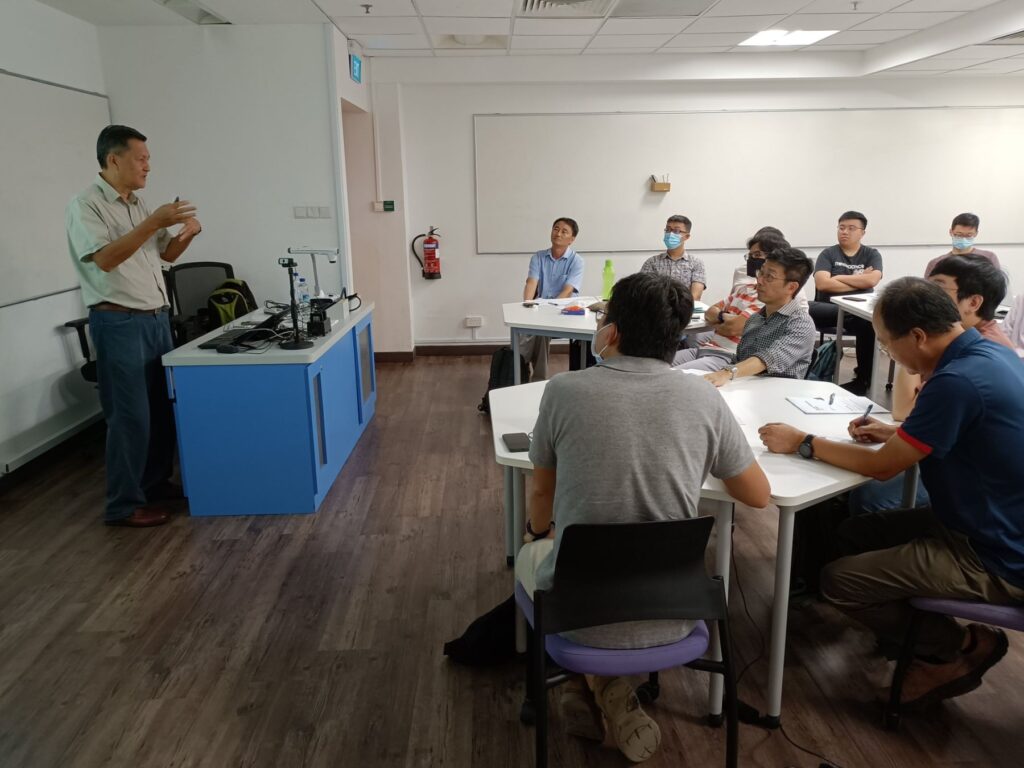
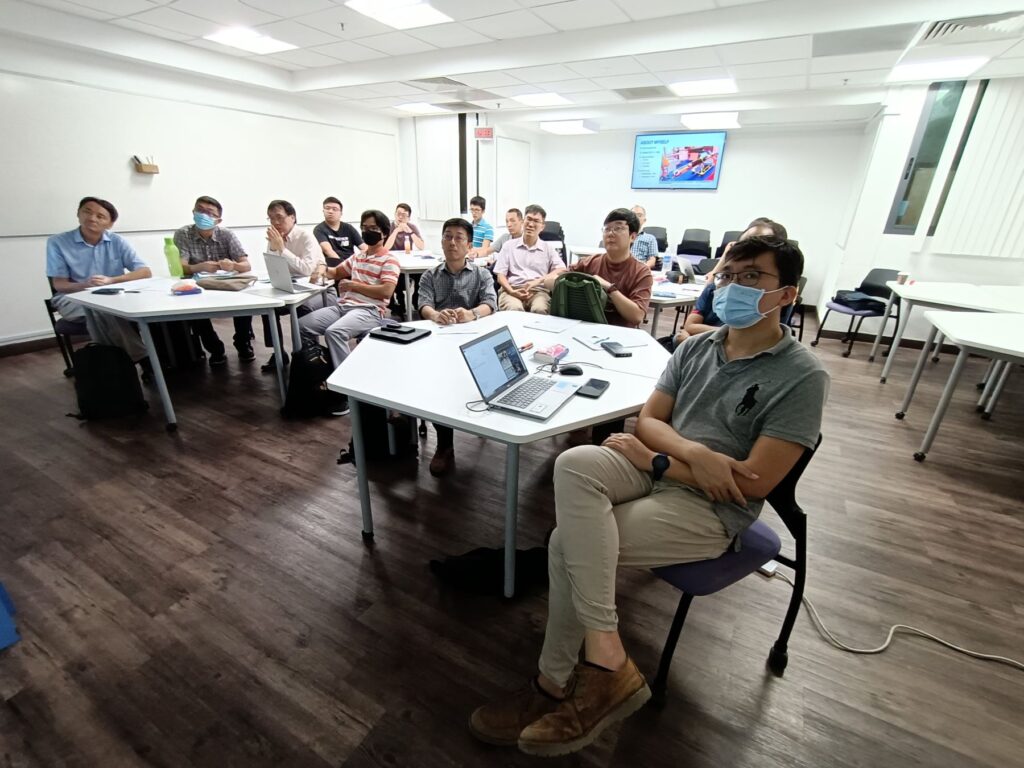
TDSI’s Executive Course “Systems Engineering and Analysis of Emerging Advanced Technologies for Defence Applications”
It is important for the Singapore defence forces to be at the frontier and be knowledgeable about emerging technologies for defence applications. The executive course on “Systems Engineering and Analysis of Emerging Advanced Technologies for Defence Applications” aims to present concepts and methods for engineering and analysing emerging advanced technologies, that include artificial intelligence and directed energy weapons, for defence applications. Course participants from the defence technology community have learnt and gained insights from the course that introduced concepts in complexity theory, strategic thinking, technology assessment, systems engineering and systems analysis. Course participants were appreciative that the learning gained have value-added to their current work with their primary affiliated organisations in the defence eco-system.
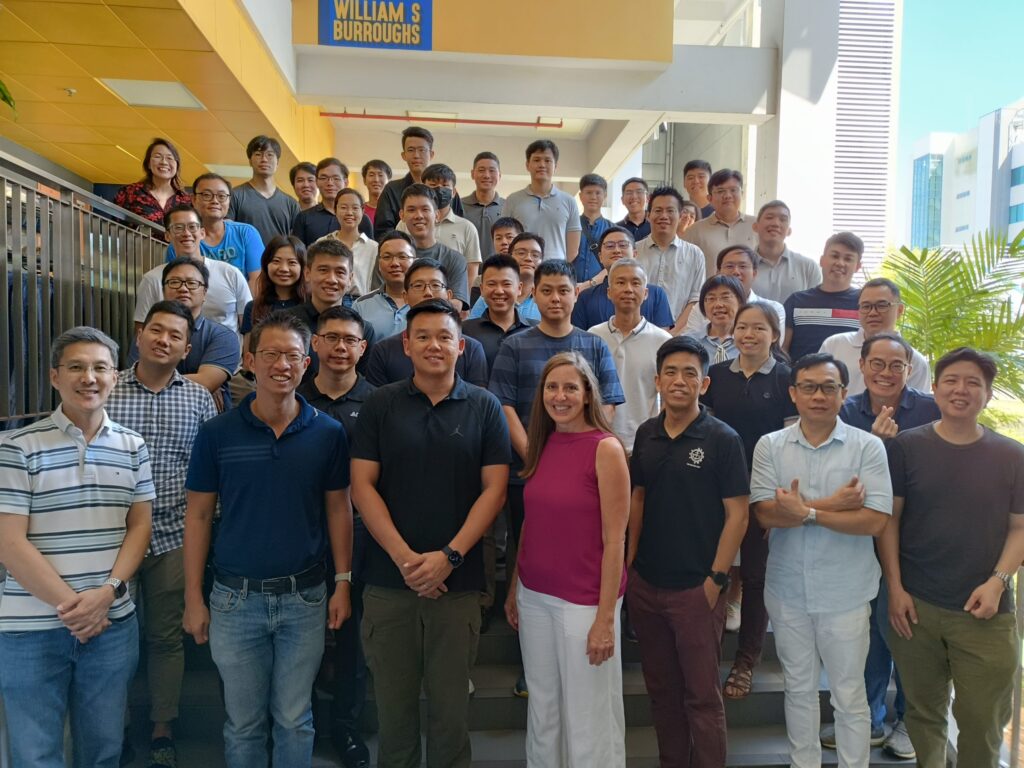
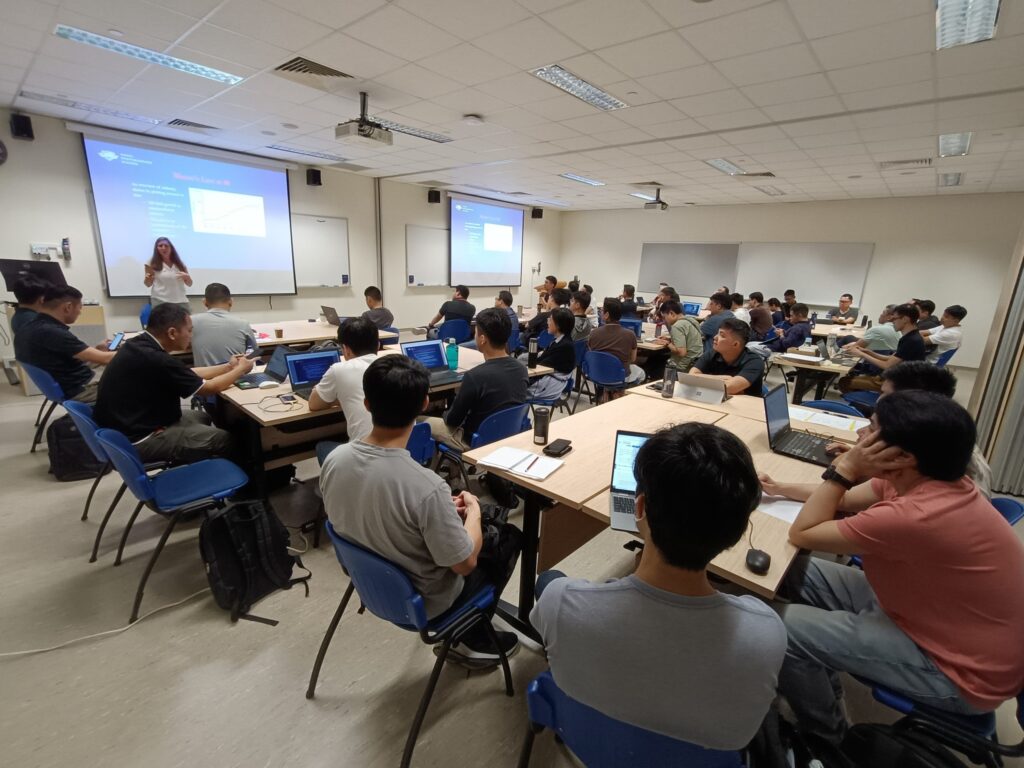
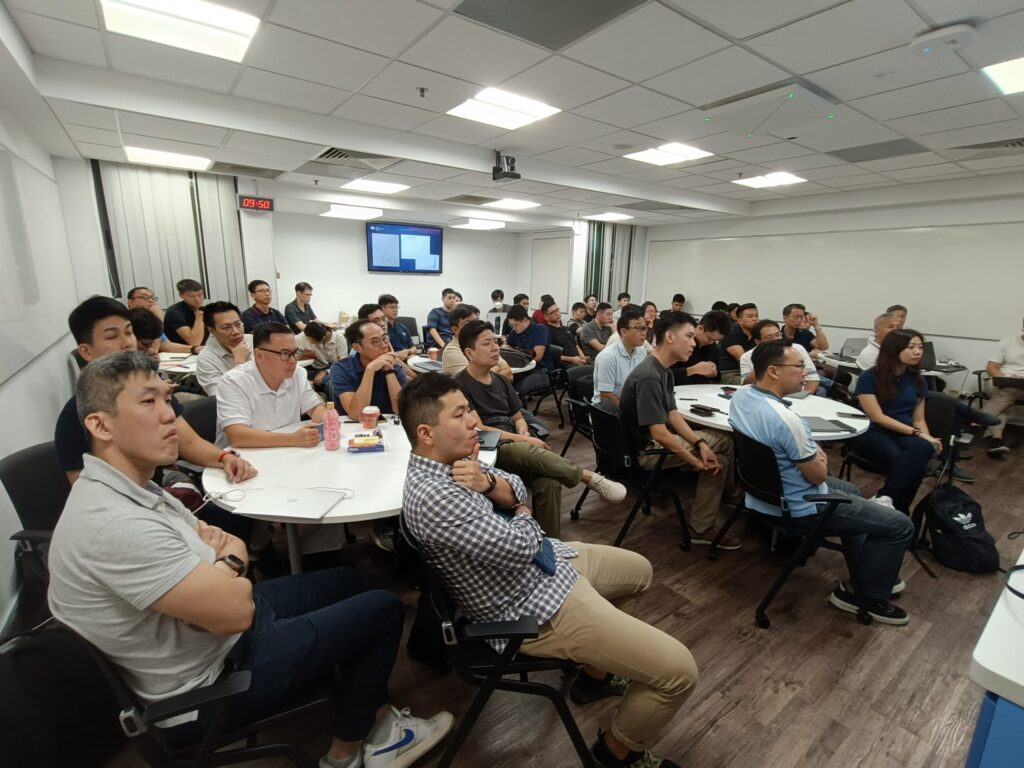
TDSI’s Executive Course “Generative Artificial Intelligence”
Artificial Intelligence (AI) technologies have been widely adopted in operations and work processes/ systems at the national level and in various industries. Generative AI is the latest cutting-edge technology that has been launched to extreme popularity, with progressive adoption by enterprises and industries because of its capabilities that can boost productivity and value-add decision-making, alongside many other deployment opportunities. Recognising the increasing importance of Generative AI for the defence sector, TDSI organised the executive course on this in-trend technology for the Singapore defence technology community to equip them with the fundamental knowledge of key concepts and applications of Generative AI, included algorithms such as generative adversarial networks (GANs) and variational autoencoders (VAEs). Course participants learnt how Generative AI could enhance military operations, from synthetic training data generation to scenario planning and decision support systems. This course is well-recognised by the Professional Engineers Board and qualified for 12 Professional Development Units.
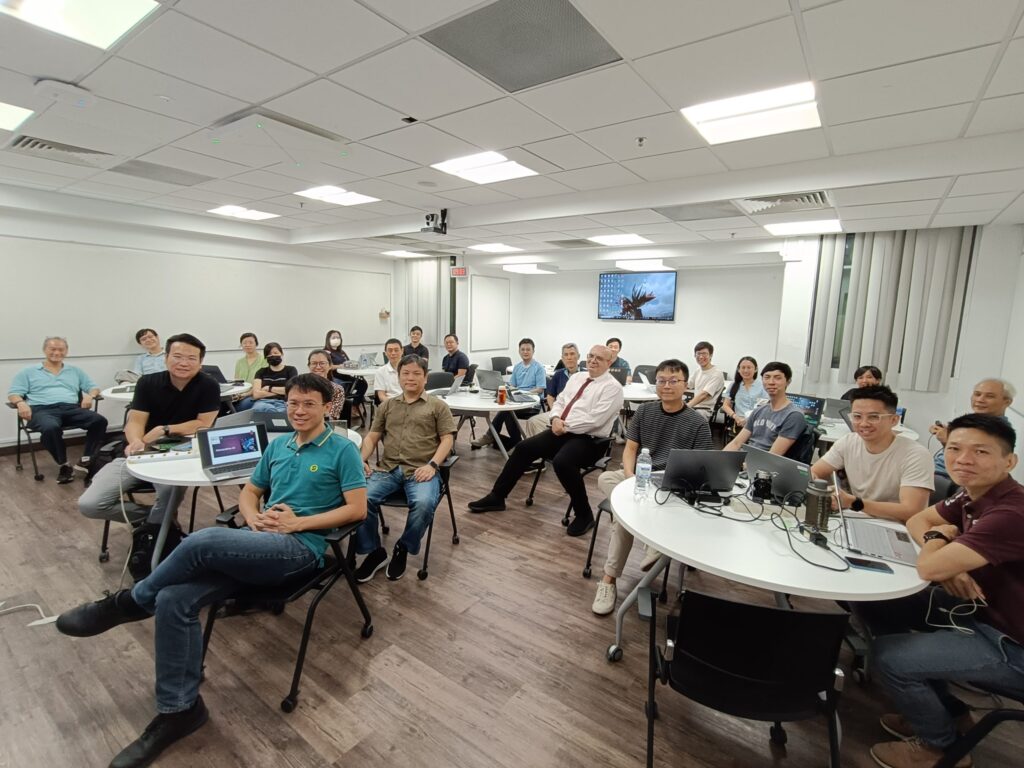
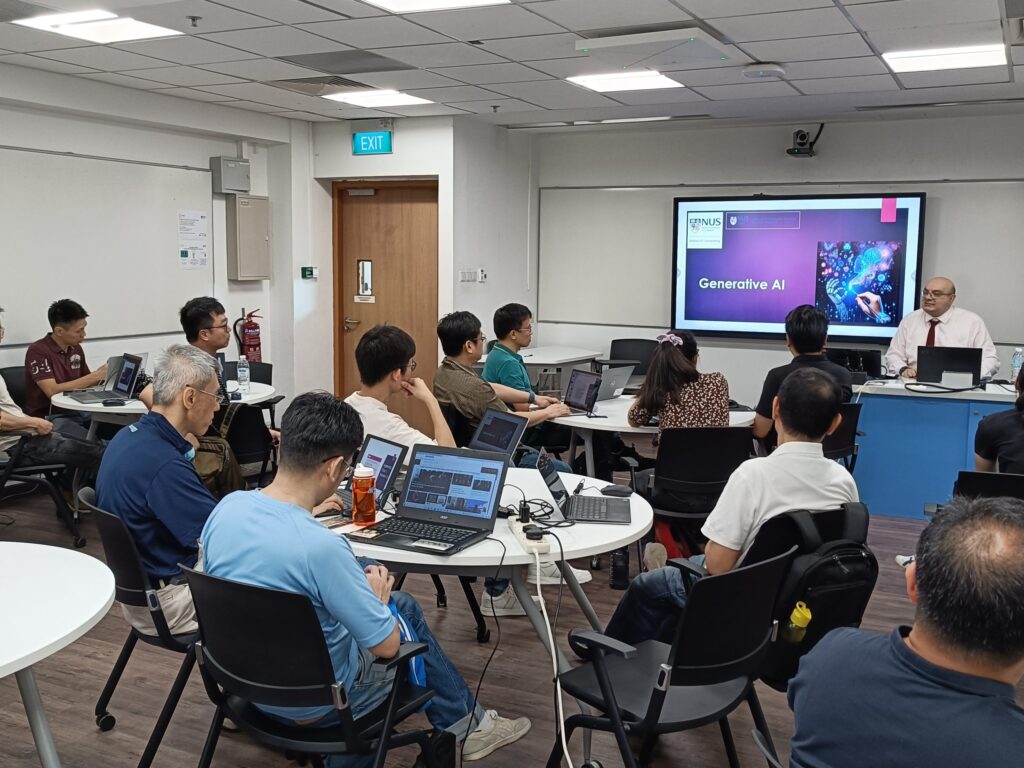
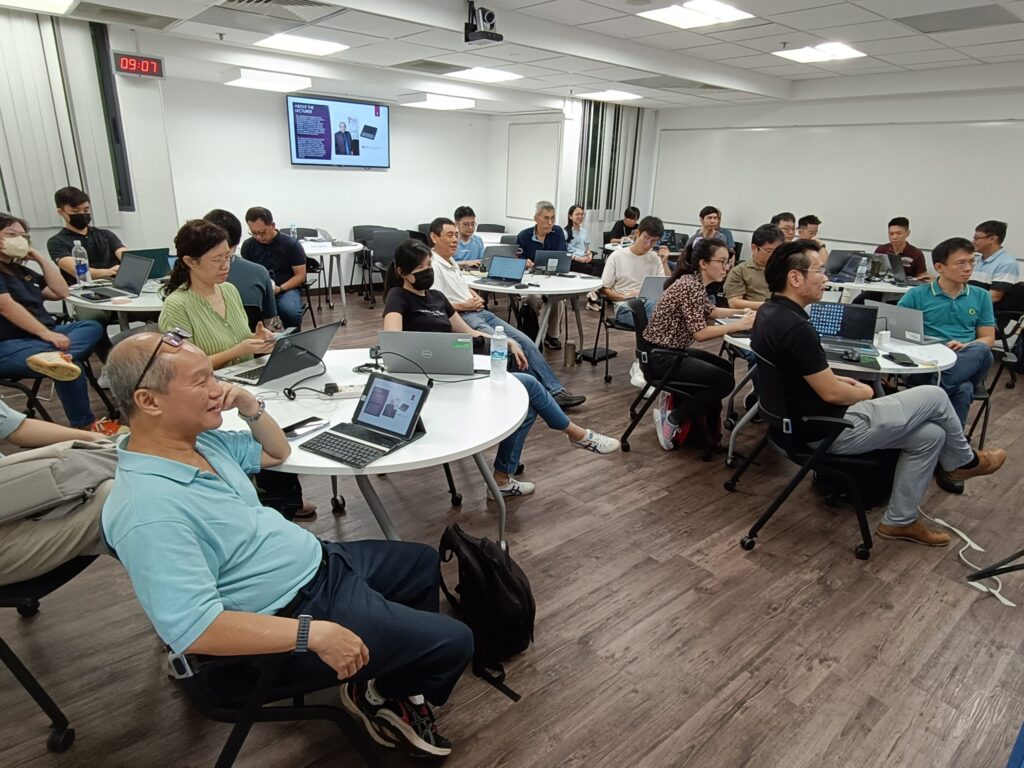
TDSI’s Executive Course “Swarm Intelligence and AI-Driven Unmanned Aerial Systems”
Swarm intelligence has become increasingly important for the defence community to learn as the technology is reshaping how autonomous systems operate in complex and contested environments. It is strategically important for the defence professionals to understand swarm intelligence technology to gain operational advantage, and with technology readiness, to ensure resilience and shape the future of warfare. Swarm intelligence is also a dual-use technology that could be applied from search-and-rescue and disaster response to maritime surveillance, making it essential for multi-domain operations. This 3-day intermediate-level course of TDSI focused on the fundamental and advanced concepts of multi-agent autonomous systems in the context of aerial swarms, specifically on the latest state-of-the art and practical applications. The course also provided a comprehensive overview of robotics and multi-agent systems, swarm formation, communications, task scheduling and allocations, swarm operations, as well as applications for heterogeneous systems and an introduction to game theory.
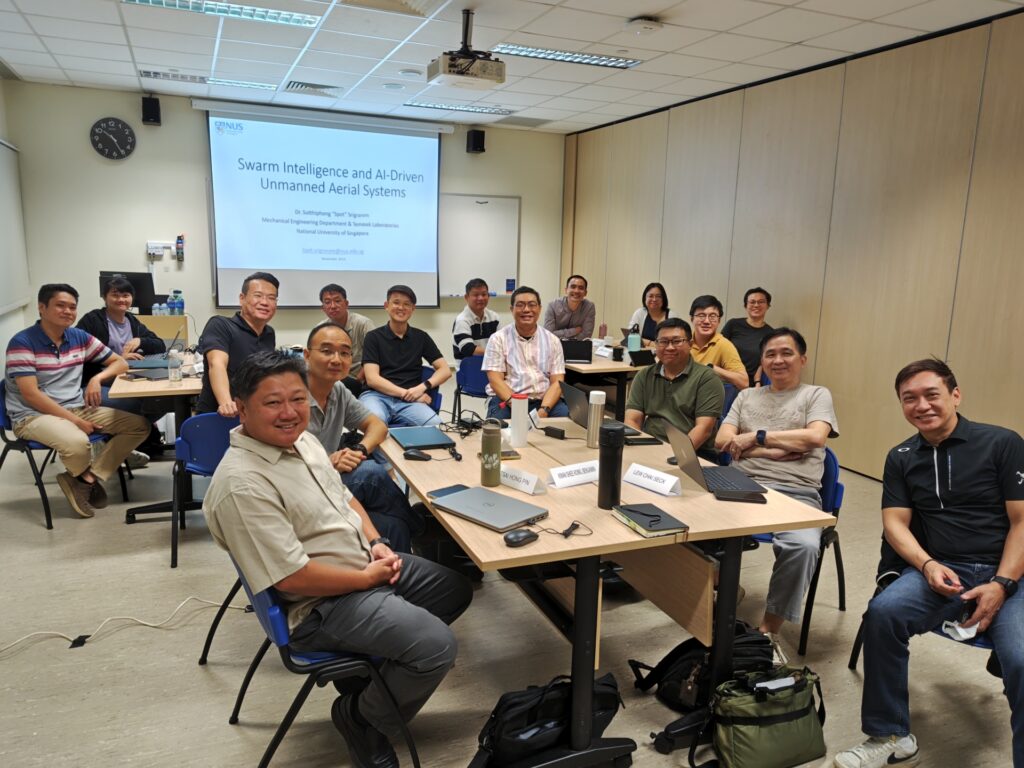
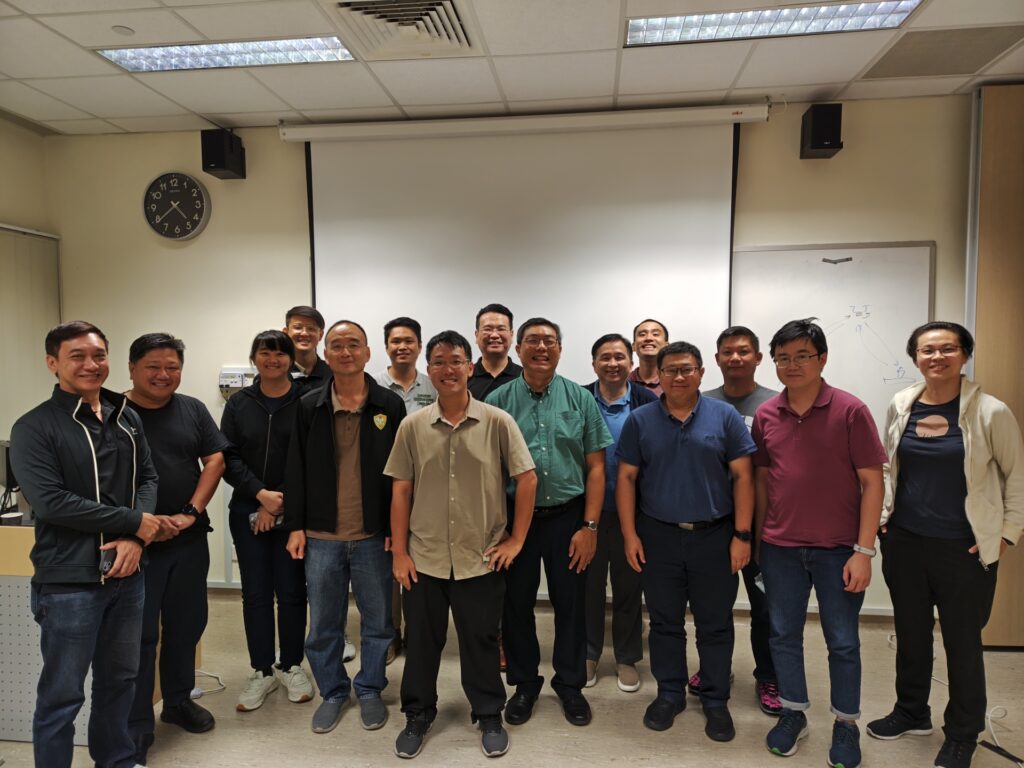

Systems Reliability-Availability-Maintenance (RAM) Engineering
Overview
This course focuses on reliability data analysis for repairable systems with replaceable components/sub-systems under maintenance. It advocates the use of data-driven and reliability-centred strategies for achieving high system reliability with optimal cost/resources.
Learning Outcome
(1) To enhance the readiness and proficiency of engineers and managers involved in Reliability-Availability-Maintenance activities in a digital workplace.
(2) To provide a system view and the integration of reliability centred maintenance (RCM) with data analytics.
(3) To implement data driven RCM using the information derived from reliability data analysis using Excel.
(4) To enable engineers and managers to draw actionable insights through the analysis to support maintenance decisions.
Trainer Bio

Prof Tang Loon Ching
Professor, Department of Industrial Systems Engineering & Management, National University of Singapore
TANG Loon Ching is a Professor at the Department of Industrial Systems Engineering & Management (ISEM) in National University of Singapore (NUS). He has served as the Director of Temasek Defence Systems Institute from 2014 to 2020 and the Head of Department of ISEM from 2008-2015. He has been appointed as a honorary adjunct professor of the Harbin Institute of Technology from 2018-2022. He has also been elected as the Region Vice President (Asia) for the Institute of Industrial & Systems Engineers (IISE) from 2012-2015.
LC Tang obtained his PhD in the field of operations research from Cornell University in 1992 under the NUS Overseas Scholarship. Prior to that, he graduated with a BEng (first class honors) in mechanical engineering and MEng (ISE) from NUS. He has published widely in many leading international journals in the field of Industrial Engineering & Operations Management (IEOM). He was presented the IISE Transactions 2010 Best Application Paper Award and the prestigious Ralph A. Evans/P.K. McElroy Awards for the best paper presented at 2011 Reliability and Maintainability Symposium. Both awards were the first time that they went to authors who are Singapore-based researchers while the latter was also the first time that the award went to authors affiliated to an Asian University in its 58-year history. He has been named 2014 IEOM Outstanding Educator by the IEOM Forum. He is a Fellow of the International Society of Engineering Asset Management.
LC Tang is the Editor-in-Chief of Quality and Reliability Engineering International, an international journal devoted to practical engineering aspects of quality and reliability; and has been on the editorial review board of the Journal of Quality Technology, which is the flagship journal of American Society for Quality, since 2006, among others. He is the main author of the book: Six Sigma: Advanced Tools for Black Belts and Master Black Belts (which is the winner of the inaugural Masing Book Prize by International Academy of Quality); and a co-author of Markov-Modulated Processes and Semiregenerative phenomena. He is one of the founding members of Global Ports Research Alliance, IIE Asian Network and the steering committee of Logistics and Maritime Systems Conference Series; and has served as the General Chair of these conference series during their formation years. In recent years, he has focused his research on systems resilience and is a principal investigator of the Future Resilient systems programme (phase I and II) funded by the National Research foundation. He has frequently been invited as a keynote speaker for international conferences in the field of industrial engineering and reliability.
Details
-
14 Aug 2024 - 16 Aug 2024
- 3 days
- By Invitation Only
Status
This event is now closed.
